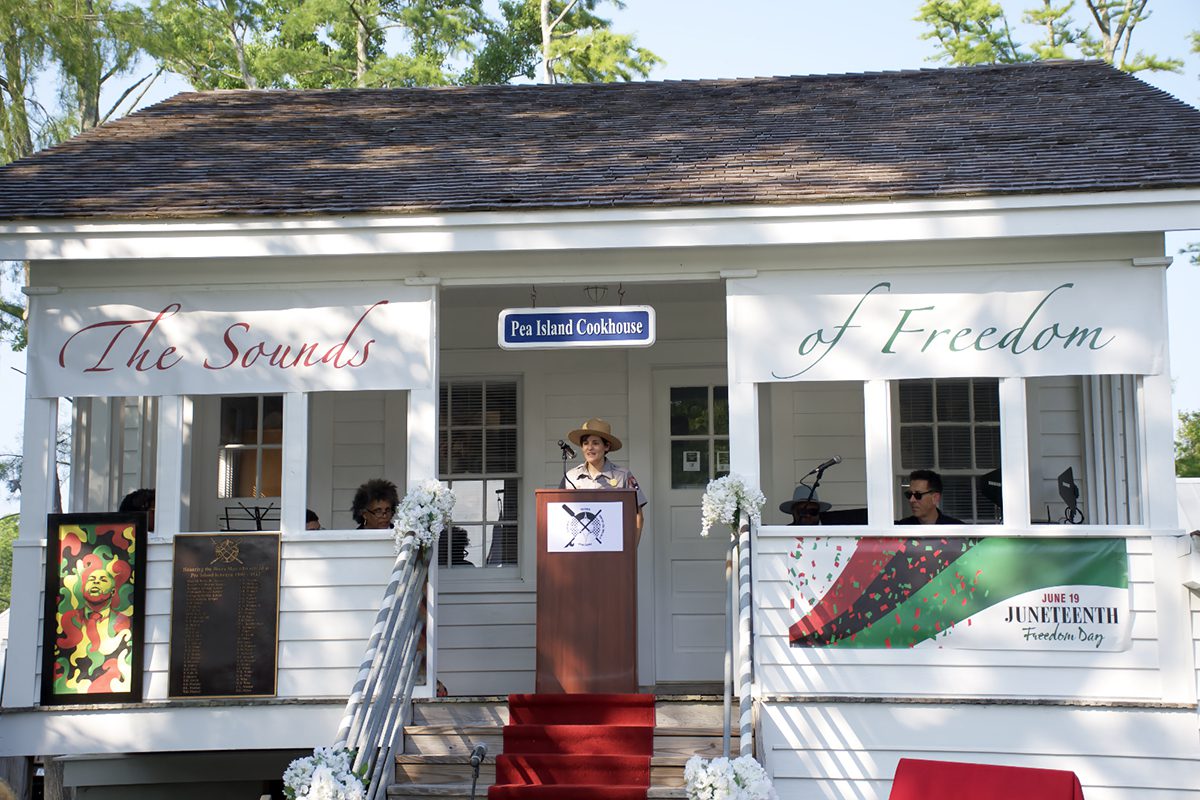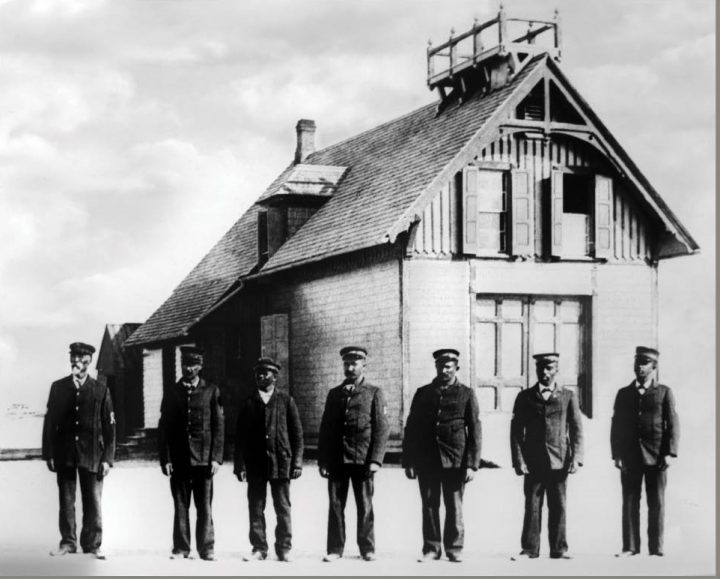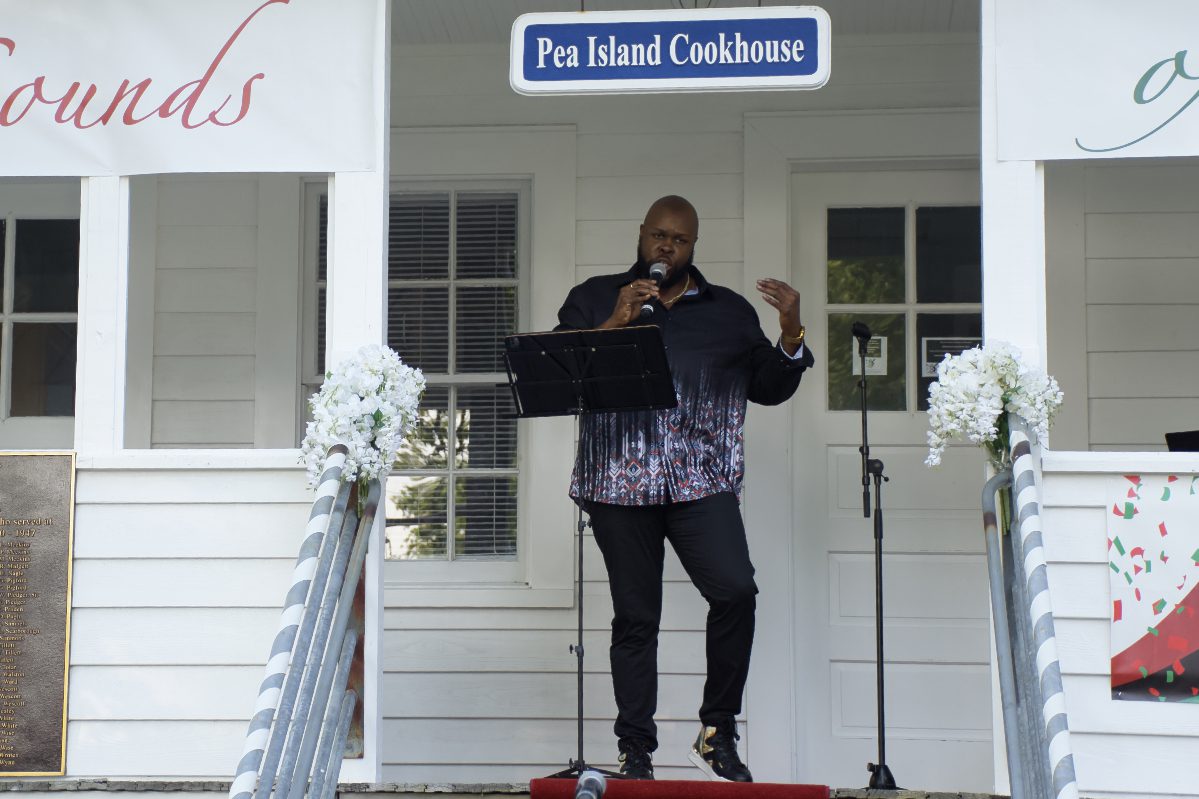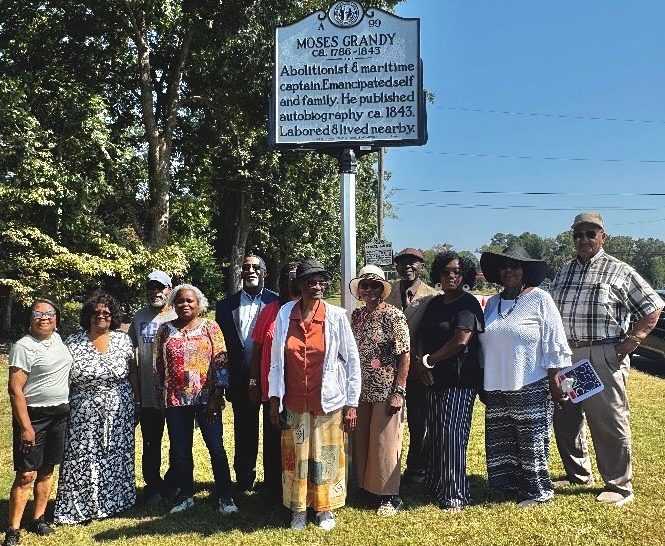
MANTEO — The Juneteenth celebration at the Pea Island Cookhouse Museum was held two days early this year, an event that focused on the African American experience as part of the fabric of our nation and that included the announcement of a new effort to help tell part of the story.
A glimpse into the Freedmen’s Colony experience may soon be brought to life thanks to a planned Fort Raleigh National Historic Site project, Ranger Isabel Gonzalez announced Saturday.
Supporter Spotlight
She said that the National Park Service is creating a 1.2-mile interpretive trail to help visitors understand the short-lived colony where formerly enslaved people of Roanoke Island got their first taste of freedom during the Union occupation early in the Civil War.
The trail project planning is still in its earliest stages, Gonzalez noted.
“Right now, there’s nothing out there. If you’re walking on it, you’re going to get bit by mosquitoes and that’s it,” she said.
The work, though, has begun on recreating the history and lives of the people who lived there, and Gonzalez described the stories that will be told along the trail once it is completed.
“We’re going to establish seven outdoor exhibits on the Freedom Trail that talk about not just what life was like in the Freedmen’s Colony but also present individual stories, actual people that lived there, because while we don’t have many pictures, we do have enough narratives to build stories for these individuals, to give them a voice,” she said.
Supporter Spotlight
Viewed as different
The Pea Island Cookhouse Museum is a small building on the west side of Manteo that has been meticulously restored and contains memorabilia and artifacts illustrating the Black experience in the U.S. Life-Saving Service. The building was, at one time, the cookhouse for the Pea Island Life-Saving Station, the only all-Black crew in the history of the Life-Saving Service, a tradition that continued even after the service became the U.S. Coast Guard in 1915. The station was deactivated in 1947.
The Pea Island Preservation Society is the organization that moved the cookhouse to Manteo and renovated the building.

During the Juneteenth event featuring lyric tenor and native son Tshombe Selby, a member of the Metropolitan Opera of New York, the society’s outreach director, Joan Collins, described what 19th century life was like for the Black crewmen.
Calling attention to Capt. Richard Etheridge, who in 1880 became the first Black captain of a Life-Saving Station, Collins described his history with the service and how it was defined by race.
“Before the all-Black Pea Island Life-Saving Station was formed, Richard Etheridge himself was part of what was called a checkerboard crew, a lifesaving crew that had both white and Black surfman,” she said.
“Why was there even a need to make a racially mixed station have a different name?” she asked and then answered her question. “Because they were viewed as different. These men frankly existed at a time when being white was right. And being Black meant you were looked at and you were viewed differently. But certainly, the heroes of this history, they were no different than anyone else.”
For Collins, the lessons of the checkerboard crews and the Pea Island Life-Saving Station continue to be relevant to understanding the call to freedom.
“Learn about it, share it, embrace it, challenge others to do the same,” she said. “Learn the powerful stories, the heroic stories, the sad stories, the complicated stories, the hopeful stories, the stories that remind us of the sound of freedom.”

Selby, as the featured performer, began the event with his a cappella interpretation of “The Star Spangled Banner,” staying true to the traditional melody while also displaying his operatic skills, range and nuance.
Performing with pianist John Buford, Selby also performed “Lift Every Voice and Sing.” Written and composed by James Weldon Johnson and his brother, J. Rosamond Johnson in 1900, the song has become known as the African American national anthem.
In past years, Selby’s selections at the Juneteenth Pea Island Cookhouse celebration have focused on traditional spirituals, and some were included this year — “Give Me Jesus” and “He’s Got the Whole World in his Hands” among them. But he also brought more contemporary songs describing the Black experience, including Sam Cooke’s “Long Time Coming” and a rousing arrangement of “I Wish I Knew how It Would Feel to be Free,” a song made famous by Nina Simone.
The day’s events ended with the unveiling of Nags Head artist James Melvin’s most recent painting, “The Freedmen’s School,” depicting children and adults at a Freedmen’s school learning how to read.







